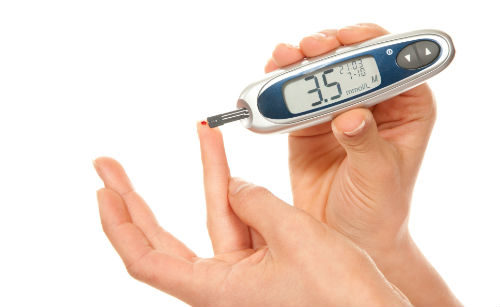Your blood sugar level is not just an indicator to tell you if you are diabetic. It has much more to do with your well being! Your blood sugar level can be said to be within normal limits if it ranges between 70-110mg/dl.
 As you go beyond it, you are at risk and must be probably getting ready to be diabetic. This is all what most of us think about our blood sugar levels. Is that all? Well the answer is NO. you are again at risk, in fact a greater one if your sugar level drops below normal and you are said to be hypoglycemic.
As you go beyond it, you are at risk and must be probably getting ready to be diabetic. This is all what most of us think about our blood sugar levels. Is that all? Well the answer is NO. you are again at risk, in fact a greater one if your sugar level drops below normal and you are said to be hypoglycemic.
What is Hypoglycemia?
Hypoglycemia is a condition when your blood glucose level drops below 63mg/dl or if your plasma glucose level goes below 55mg/dl. Here we consider plasma glucose level and blood glucose level as two different entities when RBC bound glucose molecules are excluded while measuring plasma glucose level.
Most common causes for Hypoglycemia
The most common one among the common causes is the prolonged or improper use of anti-diabetic drugs. Diabetic patients who are on medication are prone to have attacks of hypoglycemia and might even collapse, resulting in serious morbidity if left untreated. Such a condition is called as Hypoglycemia unawareness, seen as a consequence of aggressive diabetic treatment leading to attenuated sympatho-adrenal response.
Related: These Simple Food Habits will Help You to Lead a Healthy Lifestyle
Disorders of infancy and childhood such as transient intolerance of fasting, congenital hyperinsulinism, or breast feeding by diabetic mother can make you hypoglycemic. Endogenous factors like insulinoma, ectopic insulin secretion, non beta cell tumors, hormonal deficiencies like that of cortisol, growth hormone, glucagon or epinephrine can put you in danger. You are prone to hypoglycemia if you are suffering from critical illness like hepatic, renal or cardiac failure and/or sepsis. If you are alcoholic or frequently taking quinine or salicylates, you better get your glucose level checked regularly.
Am I Hypoglycemic?
Symptoms of hypoglycemia can be categorized as autonomic, neuroglycopenic or non-specific. Autonomic symptoms include sweating, trembling, hunger, anxiety, fatigue and pounding heart.

Neuroglycopenic symptoms include confusion, drowsiness, inco-ordination, irritability, speech difficulty or seizures. Non specific symptoms like nausea, tiredness and headache are not a sure indicator of the said ailment.
Am I at Risk?
You are at risk if you are diabetic since long or if under strict diabetic control. Genetic factors, renal impairement or tender age (children and aged) pull you towards the “endangered group”.
Is Hypoglycemia a serious condition?
Well it’s a big YES! Hypoglycemia if left untreated or improperly managed can result in high morbidity like brain damage, focal neuronal lesion, stroke, transient ischemic, intellectual decline, convulsions or even coma.
The reason being the fact that unlike other tissues and organ systems, the brain does not have a substitute mechanism to supply glucose to its cells if left hypoglycemic for more than 4 minutes, leading to severe brain damage.cardiac arrhythmia, myocardial ischemia, vitreous hemorrhage, worsening of pre-existing retinopathy or hypothermia are other complications of hypoglycemia.
Can it be managed successfully?
You can tactfully take care of a person in hypoglycemic shock through careful assessment of patient’s condition and intelligent selection of required remedies. If the attack is mild and the patient is fully conscious, then about 10-15g oral glucose can be given along with a snack containing carbohydrates.
Related: Know Your Thyroid, Keep an Eye On It!
As severity increases, ie, if the patient is semiconscious or unconscious you have no other option than shifting the patient to a nearby medical centre because the patient badly needs a parenteral supply of 75ml 20% dextrose intravenously or intramuscular glucagon. If the patient is able to swallow, he/she will require oral refined glucose. You can also apply glucose gel or jam or even honey to the buccal mucosa.
Can Hypoglymia be prevented?
Carry a supply of fast acting carbohydrate, packets of powdered glucose, a toffee or confectionaries while you travel. While at home, let your family members know about your condition and make them aware about the measures to be taken in case you collapse. Also get your blood glucose tested frequently.
